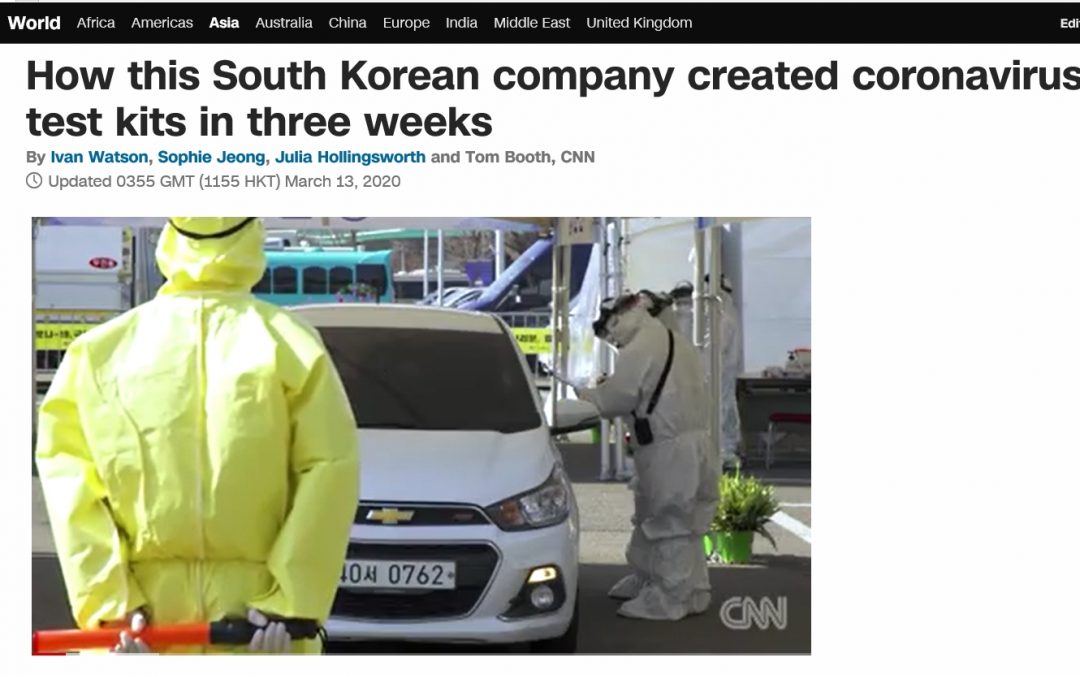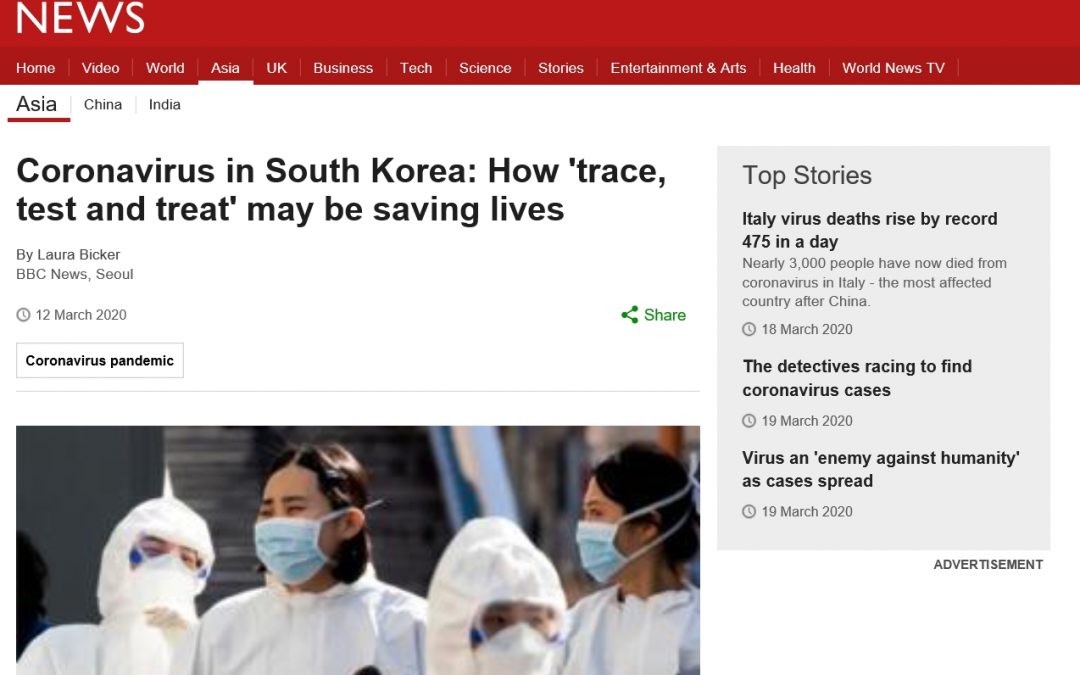
How this South Korean company created coronavirus test kits in three weeks
How this South Korean company created coronavirus test kits in three weeks
| Fighting COVID-19 |

CNN, US news agency, reported on how Korea has quickly developed the test kits for coronavirus on 13th of March. On January 16, Chun Jong-yoon, the chief executive and founder of molecular biotech company Seegene, started focusing on coronavirus. That was before the virus sweeping China had been named Covid-19 and four days ahead of South Korea confirming its first case.
While some nations have struggled to get enough test kits to diagnose suspected patients, South Korea has provided free and easy access to testing for anyone who a doctor deems needs it. “Detecting patients at an early stage is very important,” South Korea’s health minister Park Neung-hu told CNN Monday. “South Korea is an open society and would like to protect the freedom of people moving around and traveling. That is why we’re conducting mass amount of tests.”
The Seegene houses an artificial intelligence-based big data system, which has enabled the firm to quickly develop a test for coronavirus. The newly developed test kits was approved for its use by South Korea’s authorities in a week and could be used in the hospitals all over Korea.
After the country’s President Moon Jae-in raised the country’s crisis alert to the highest level on February 23, all employees of Seegene would drop all other work and focus on making coronavirus test kits. Production of the company’s 50 or so other products temporarily ceased for two weeks. The firm is making about 10,000 kits a week and each kit can test 100 patients. So it is making enough to test one million patients each week.
According to Chun, the reason that South Korea has been able to test a massive number of people is that scientists are using automatic testing, which takes only four hours to test samples from 94 patients — four times faster than the manual method. It also reduces the risk of human error or contamination.
Chun wants to help health authorities overseas. “The issue is they have no chance to test the people properly,” he said. “Without the proper diagnosis, nobody knows what’s going on.”

